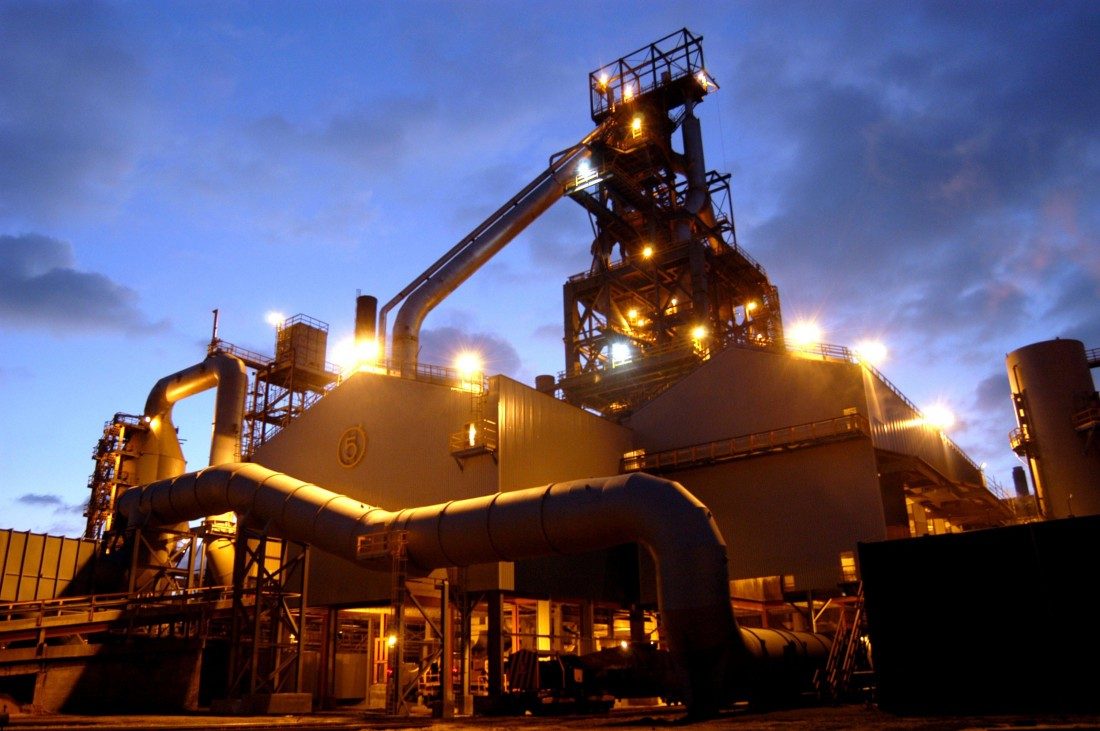The steel industry must be nationalised if private buyers aren’t found for Tata’s UK plants. The government’s current plan to part nationalise (up to 25 per cent) and debt finance to assist potential buyers is a step in the right direction, but falls short of securing the future of steel in the UK.
If the Tata plants were allowed to close, 40,000 jobs would be lost, while around half the UK’s production capacity would vanish. Britain is only the 18th largest steel producing country, but companies in our high value manufacturing sector, such as the Mini factory in Cowley, rely heavily on high-quality British steel for their products.
Opponents of possible nationalisation point out that steel isn’t profitable in the UK today, but there is a much more nuanced reality. While China floods the global markets today, making European production unprofitable, it does so at a cost. Last month China’s Dongbei steel company defaulted on a $131m debt. If China is ‘dumping’ steel at a loss into our market it makes sense for the UK to wait out the storm by subsidising or nationalising our production until the unsustainable glut of Chinese steel returns closer to equilibrium pricing.
In a few years’ time UK steel could well be profitable again. If we don’t save the industry now it simply won’t be there to take advantage of future profits. Unlike our more flexible services industry, heavy industry like steel takes enormous investment and time to establish. While companies like Tata lack the resources to keep unprofitable plants running until market forces stabilise, the government has resources and the incentives to do exactly that.
Hundreds of billions of pounds were spent bailing out the banking sector during the credit crunch, whereas Tata bought its UK plants for a comparatively tiny £6.2 billion in 2007. While the steel industry may not be as fundamental to our economy as the banking sector, the cost of saving it is so comparatively small that it is at least as valid an investment.
Furthermore, people employed in the services sector tend to have less specific skill-sets and therefore they can retrain with relative ease. This is not the case for steel workers. Last summer I did work experience in a Polish iron foundry and became aware that the skills and knowledge required to run a foundry take a long time to build and are incredibly specialised. It would be a considerable waste of skills if workers trained to make top-grade steel were expected to retrain and find work in unrelated sectors. It goes without saying that in the meantime the communities in steel towns like Port Talbot would be devastated.
In Poland, as I entered into Rzeszów iron foundry, it was like falling into hell. The air is hot and the dust from the inoculants catches the back of your throat, blackening your mucus. Every minute inside feels like an hour stolen from your life expectancy. The furnaces and crucibles glow bright orange and sparks from magnesium alloying seem to burn holes in your retinas. The casting cleaners work for six hours a day with only a 15 minute break – they leave work with hands, faces and lungs black as coke dust.
But these workers are producing some of the most advanced cast iron products in the world. This small Polish town is producing cylinder blocks for every single GE train in India using a casting technique only ever developed in that foundry. Their hard and seemingly unfair graft has made Rzeszów a very wealthy and clean town and has helped the local universities to progress.
While heavy industry may not always bring in money, it does create skill, pride and power for normal people. More than we can say for our elitist and often destructive financial sector. There is no future in which Britain is better off without its steel industry, even if it remains unprofitable for some time. Unlike the coal industry, which could be replaced with North Sea gas, nuclear and renewable power, the steel industry is indispensable.
There is not yet an alternative material and so in economic terms the failure of the steel industry is not creative destruction, but plain destruction. I’m sure the thousands of workers in British steel feel the same.



